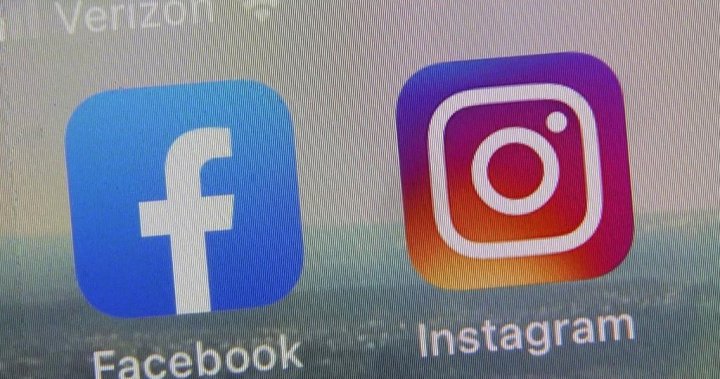
Tweaking Facebook, Instagram algorithms won’t address polarization: studies
Global News
While algorithms excel at keeping users engaged, they have been criticized for amplifying misinformation and ideological content that has worsened political divisions.
The powerful algorithms used by Facebook and Instagram to deliver content to users have increasingly been blamed for amplifying misinformation and political polarization. But a series of groundbreaking studies published Thursday suggest addressing these challenges is not as simple as tweaking the platforms’ software.
The four research papers, published in Science and Nature, also reveal the extent of political echo chambers on Facebook, where conservatives and liberals rely on divergent sources of information, interact with opposing groups and consume distinctly different amounts of misinformation.
Algorithms are the automated systems that social media platforms use to suggest content for users by making assumptions based on the groups, friends, topics and headlines a user has clicked on in the past. While they excel at keeping users engaged, algorithms have been criticized for amplifying misinformation and ideological content that has worsened political divisions.
Proposals to regulate these systems are among the most discussed ideas for addressing social media’s role in spreading misinformation and encouraging polarization. But when the researchers changed the algorithms for some users during the 2020 U.S. election, they saw little difference.
“We find that algorithms are extremely influential in people’s on-platform experiences and there is significant ideological segregation in political news exposure,” said Talia Jomini Stroud, director of the Center for Media Engagement at the University of Texas at Austin and one of the leaders of the studies. “We also find that popular proposals to change social media algorithms did not sway political attitudes.”
While political differences are a function of any healthy democracy, polarization occurs when those differences begin to pull citizens apart from each other and the societal bonds they share. It can undermine faith in democratic institutions and the free press.
Significant division can undermine confidence in democracy or democratic institutions and lead to “affective polarization,” when citizens begin to view each other more as enemies than legitimate opposition. It’s a situation that can lead to violence, as it did when supporters of then-President Donald Trump attacked the U.S. Capitol on Jan. 6, 2021.
To conduct the analysis, researchers obtained unprecedented access to Facebook and Instagram data from the 2020 election through a collaboration with Meta, the platforms’ owners. The researchers say Meta exerted no control over their findings.

 Run 3 Space | Play Space Running Game
Run 3 Space | Play Space Running Game Traffic Jam 3D | Online Racing Game
Traffic Jam 3D | Online Racing Game Duck Hunt | Play Old Classic Game
Duck Hunt | Play Old Classic Game











